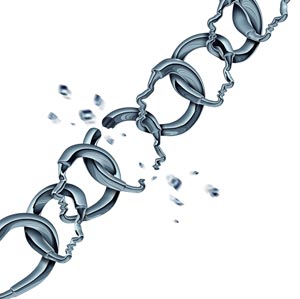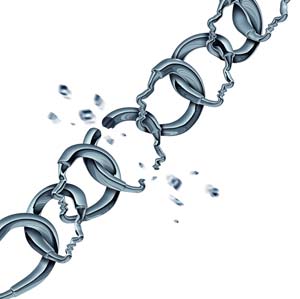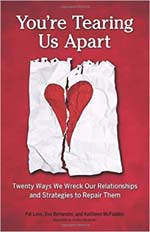How to be a better friend/spouse/lover, through Empathy and Compassion
Empathy is simply being able to feel and understand another person’s feelings, when they are in a difficult situation. It is being able to communicate your understanding of that person’s feelings to that person, and being non-judgmental. While this is important and certainly a good skill to use often, healthy and intimate relationships have to go beyond this. Think about it: just because I know what you are feeling doesn’t mean I care or will act in a helpful manner.
Compassion is going a step further. Compassion is the desire to show care, concern, sensitivity, warmth, love, tenderness and kindness, because you care and want to alleviate the suffering. Empathy is knowing: compassion is caring. Empathy says, “I know how your feel.” Compassion says, “I want to be part of this with you, so how can I help?”
Both skills are connecting, and kind. Knowing the difference can help assist you to respond and connect, in the manner you feel is most helpful and appropriate for your relationship and the situation.

 Denise O’Doherty, psychotherapist and Licensed Marriage and Family Therapist, will give tips and insights on how we can better define, love and protect ourselves through “Personal Boundaries and Effective Confrontation”. Good boundaries affect everything we do. They give us freedom to be ourselves and they teach others how to treat us. Topics addressed will be what gets in the way of having good boundaries, the difference between rigid and flexible boundaries, and how to deal with passive and aggressive people by understanding their cost and payoff. Boundary setting tips, self-esteem, codependency, shame and guilt will also be addressed. She will conclude with an outline for us a step by step way to confront someone effectively.
Denise will begin with a short review of “Stages of Grief” by special request, for those dealing with feelings of loss post-election.
Visit her website at:
Denise O’Doherty, psychotherapist and Licensed Marriage and Family Therapist, will give tips and insights on how we can better define, love and protect ourselves through “Personal Boundaries and Effective Confrontation”. Good boundaries affect everything we do. They give us freedom to be ourselves and they teach others how to treat us. Topics addressed will be what gets in the way of having good boundaries, the difference between rigid and flexible boundaries, and how to deal with passive and aggressive people by understanding their cost and payoff. Boundary setting tips, self-esteem, codependency, shame and guilt will also be addressed. She will conclude with an outline for us a step by step way to confront someone effectively.
Denise will begin with a short review of “Stages of Grief” by special request, for those dealing with feelings of loss post-election.
Visit her website at:
 We also use food for reasons other than nourishment.
It’s one thing to use substances within a healthy framework, but another to cross the line into addiction – and it can be very difficult to see the difference.
When we are in physical or emotional pain, we want relief immediately. When the nervous system is out of balance, we try to regulate ourselves in the best ways we know how. We turn to many substances and activities: alcohol, drugs, sex, shopping, the Internet, porn, gambling and gaming. What happens after a while is that we build up tolerance and after time you much consume more to get the same effect.
The Problem with addiction.
When you are in an altered state, you become very self-centered. Frequently, the addictive habit becomes your primary relationship. Now your partner becomes a competitor to the addiction for time and attention.
Transforming Addiction
Consider these questions:
We also use food for reasons other than nourishment.
It’s one thing to use substances within a healthy framework, but another to cross the line into addiction – and it can be very difficult to see the difference.
When we are in physical or emotional pain, we want relief immediately. When the nervous system is out of balance, we try to regulate ourselves in the best ways we know how. We turn to many substances and activities: alcohol, drugs, sex, shopping, the Internet, porn, gambling and gaming. What happens after a while is that we build up tolerance and after time you much consume more to get the same effect.
The Problem with addiction.
When you are in an altered state, you become very self-centered. Frequently, the addictive habit becomes your primary relationship. Now your partner becomes a competitor to the addiction for time and attention.
Transforming Addiction
Consider these questions:
 The message is that holidays are a time of giving and receiving surrounded by family and friends giving recognition for our lives. Its easy to envision festive images of family, friends, food, party’s and religious observation.
In other words the holidays are supposed to be a time of celebration and fun. Yet, ironically holidays can also bring about stress, anxiety, depression and disappointment. These occur for many reasons. Socializing for the holidays often is an excuse for people to over eat, and over drink, feeling miserable and remorseful later. Guilt and shame can also accompany “giving in”. The pressure of gift giving and going out more can be stressful if one over- steps financial boundaries and spends too much, only to pay for it later, both financially and emotionally. Feeling frantic, trying to live up to what you think others expect from you and what you unrealistically expect from yourself and others can lead to anxiety and disappointment. Compromising your values or beliefs, feeling stuck and obligated, with limited choices and alternatives can lead to depression.
Symptoms that alert us to depression are:
The message is that holidays are a time of giving and receiving surrounded by family and friends giving recognition for our lives. Its easy to envision festive images of family, friends, food, party’s and religious observation.
In other words the holidays are supposed to be a time of celebration and fun. Yet, ironically holidays can also bring about stress, anxiety, depression and disappointment. These occur for many reasons. Socializing for the holidays often is an excuse for people to over eat, and over drink, feeling miserable and remorseful later. Guilt and shame can also accompany “giving in”. The pressure of gift giving and going out more can be stressful if one over- steps financial boundaries and spends too much, only to pay for it later, both financially and emotionally. Feeling frantic, trying to live up to what you think others expect from you and what you unrealistically expect from yourself and others can lead to anxiety and disappointment. Compromising your values or beliefs, feeling stuck and obligated, with limited choices and alternatives can lead to depression.
Symptoms that alert us to depression are:
 It’s a “communication issue” or “a failure to set boundaries.” Maybe you’ve thought your partner has a bad temper or a problem with anger management. Perhaps you think that you are doing something wrong or that there is something wrong with you. In our society, we aren’t very good at talking about abuse, so women are often left wondering.
A common myth is that abuse means only physical abuse. But, actually, there are many different types of abuse, including emotional, psychological, financial, and sexual abuse. These can be just as damaging as physical abuse. For example, abusive partners can attempt to isolate you or cut you off from sources of support, use sarcasm or threats to put you down, change moods to intimidate you, express jealousy, and become emotionally distant.
They can also refuse to allow you to practice your faith, devalue your knowledge or education, control the finances, or threaten to have an affair if you don’t do what they ask. These and many other examples are not generally thought of as abuse. You may know there is something “wrong” but may not label it as abuse. Here’s a list of seven things that abusive partners often do in their relationships. Ask yourself if your partner does any of these things:
It’s a “communication issue” or “a failure to set boundaries.” Maybe you’ve thought your partner has a bad temper or a problem with anger management. Perhaps you think that you are doing something wrong or that there is something wrong with you. In our society, we aren’t very good at talking about abuse, so women are often left wondering.
A common myth is that abuse means only physical abuse. But, actually, there are many different types of abuse, including emotional, psychological, financial, and sexual abuse. These can be just as damaging as physical abuse. For example, abusive partners can attempt to isolate you or cut you off from sources of support, use sarcasm or threats to put you down, change moods to intimidate you, express jealousy, and become emotionally distant.
They can also refuse to allow you to practice your faith, devalue your knowledge or education, control the finances, or threaten to have an affair if you don’t do what they ask. These and many other examples are not generally thought of as abuse. You may know there is something “wrong” but may not label it as abuse. Here’s a list of seven things that abusive partners often do in their relationships. Ask yourself if your partner does any of these things:
 While this is an exciting time, and you are to be congratulated on moving in a positive direction, you also need to mentally and emotionally prepare yourself for the adjustment period right after your breakup, which is likely to present some challenges.
All breakups are difficult, but this type is often the hardest. You feel up, then down, over and over—it’s as much of a roller coaster as your relationship itself. Understanding the patterns you are likely to encounter can really help during the early months after a breakup with an emotionally manipulative person. Here’s a list of 10 common patterns plus ways to cope with each one:
While this is an exciting time, and you are to be congratulated on moving in a positive direction, you also need to mentally and emotionally prepare yourself for the adjustment period right after your breakup, which is likely to present some challenges.
All breakups are difficult, but this type is often the hardest. You feel up, then down, over and over—it’s as much of a roller coaster as your relationship itself. Understanding the patterns you are likely to encounter can really help during the early months after a breakup with an emotionally manipulative person. Here’s a list of 10 common patterns plus ways to cope with each one:
 Before you let anger get the best of you, when you feel anger beginning to escalate, visualize a stop sign similar to one you would see on the street while driving. Take some deep breaths and imaging exhaling the anger out of your body to gain immediate control or yourself. Thought-stopping can short-circuit anger. The less angry you are, the less angry you will become.
Before you let anger get the best of you, when you feel anger beginning to escalate, visualize a stop sign similar to one you would see on the street while driving. Take some deep breaths and imaging exhaling the anger out of your body to gain immediate control or yourself. Thought-stopping can short-circuit anger. The less angry you are, the less angry you will become. Add in time for religious activities, home repair, not to mention keeping up with the cooking, cleaning, laundry, bill-paying, personal hygiene, shopping and the list goes on….not to mention sleep, recreation, hobbies. Carving out time for the two of you can feel like one more obligation to fulfill.
In some ways, it’s easier to ignore a good relationship because it doesn’t demand your attention. Unless someone is complaining, it’s easy to take each other for granted. In the process of being responsible you become irresponsible to the relationship.
Partners grow apart by: following their individual interests. Boredom, having no effective way of managing differences and through lack of connection.
Here are some common reasons why a person might choose not to connect.
Add in time for religious activities, home repair, not to mention keeping up with the cooking, cleaning, laundry, bill-paying, personal hygiene, shopping and the list goes on….not to mention sleep, recreation, hobbies. Carving out time for the two of you can feel like one more obligation to fulfill.
In some ways, it’s easier to ignore a good relationship because it doesn’t demand your attention. Unless someone is complaining, it’s easy to take each other for granted. In the process of being responsible you become irresponsible to the relationship.
Partners grow apart by: following their individual interests. Boredom, having no effective way of managing differences and through lack of connection.
Here are some common reasons why a person might choose not to connect.
 Think of reconnecting the same way you save money: pay yourself first. Carve out time for your relationship and spent that time together even if it means cheating other aspects of your life. Put a date night on the calendar and attach a serious penalty for breaking it. Don’t wait until you have time for each other: take time for each other and make other things wait!
Think of reconnecting the same way you save money: pay yourself first. Carve out time for your relationship and spent that time together even if it means cheating other aspects of your life. Put a date night on the calendar and attach a serious penalty for breaking it. Don’t wait until you have time for each other: take time for each other and make other things wait!

 Controlling behavior also can be compensation for a time or situation when the partner had no control such as growing up, a stressful job, or a former relationship. Living without personal control can increase the motivation to seize control whenever possible.
The most severe forms of control are motivated by emotional dysregulation, which is the inability to manage our own feelings. In an attempt to avoid the fear of abandonment or the shame of inadequacy, the controlling partner resorts to extreme emotions such as anger, rage, threats, and even emotional or physical abuse.
The primary difference in modern twenty-first century couples and those in the past is the level of equality, equity, freedom and autonomy. Relationships thrive when each individual has the liberty to develop and grow as a person and a partner. This evolving process generates energy that keeps both partners interested and excited about a future together.
When one partner tries to control or limit the other’s choices, excitement is replaced by resentment, which is the number one cause of growing apart, and growing apart is cited as the most common reason for divorce and separation.
Once resentment enters a relationship, excitement fades, passion wanes, and anger is never far behind. Good feelings and effective communication go out the window, while criticism, defensiveness, and withdrawal seep in. When negative exchanges begin to outweigh the positives, the relationship is in serious trouble of tearing apart.
Controlling behavior also can be compensation for a time or situation when the partner had no control such as growing up, a stressful job, or a former relationship. Living without personal control can increase the motivation to seize control whenever possible.
The most severe forms of control are motivated by emotional dysregulation, which is the inability to manage our own feelings. In an attempt to avoid the fear of abandonment or the shame of inadequacy, the controlling partner resorts to extreme emotions such as anger, rage, threats, and even emotional or physical abuse.
The primary difference in modern twenty-first century couples and those in the past is the level of equality, equity, freedom and autonomy. Relationships thrive when each individual has the liberty to develop and grow as a person and a partner. This evolving process generates energy that keeps both partners interested and excited about a future together.
When one partner tries to control or limit the other’s choices, excitement is replaced by resentment, which is the number one cause of growing apart, and growing apart is cited as the most common reason for divorce and separation.
Once resentment enters a relationship, excitement fades, passion wanes, and anger is never far behind. Good feelings and effective communication go out the window, while criticism, defensiveness, and withdrawal seep in. When negative exchanges begin to outweigh the positives, the relationship is in serious trouble of tearing apart.
 As soon as you catch yourself trying to control your partner, stop and apologize: ”There, I did it again, I’m sorry”. It’s also a good idea to tell them what you are sorry for so they know you “got it”.
Apology goes a long way if you are sincere.
Instead of directing, or trying to influence your partner to what you want, simply say “oh” (to de-escalate you and show a noncommittal neutral stance) or “tell me more about how you think about that”. You might discover a great deal of wisdom in your partner’s perspective- especially if you’re more willing to be loving than to be right.
Most controlling behavior is fueled by anxiety or fear: therefore, you must learn to manage those feeling within yourself instead of trying to manage your partner’s behavior. Emotional regulation gives you control of what happens in your mind and your own behavior. Trying to control your partner’s life will wear you out and tear down your relationships. If the old pattern of controlling starts up, call a time-out. You can’t have an argument over control when one person refuses to participate.
If you’re the partner feeling controlled, then it’s your responsibility to speak up! Silence enables the behavior to continue. You might be more aware of the controlling behavior that your partner. Work together to agree upon a kind way to signal when the pattern re-emerges. Develop a redirect strategy to replace the old habits For example: when I life my hand in the stop position, I’d like you to be quiet and let me finish what I am doing.”
If you do not feel safe or competent to talk with your partner about the issue of control, take this as a sign to seek professional help.
As soon as you catch yourself trying to control your partner, stop and apologize: ”There, I did it again, I’m sorry”. It’s also a good idea to tell them what you are sorry for so they know you “got it”.
Apology goes a long way if you are sincere.
Instead of directing, or trying to influence your partner to what you want, simply say “oh” (to de-escalate you and show a noncommittal neutral stance) or “tell me more about how you think about that”. You might discover a great deal of wisdom in your partner’s perspective- especially if you’re more willing to be loving than to be right.
Most controlling behavior is fueled by anxiety or fear: therefore, you must learn to manage those feeling within yourself instead of trying to manage your partner’s behavior. Emotional regulation gives you control of what happens in your mind and your own behavior. Trying to control your partner’s life will wear you out and tear down your relationships. If the old pattern of controlling starts up, call a time-out. You can’t have an argument over control when one person refuses to participate.
If you’re the partner feeling controlled, then it’s your responsibility to speak up! Silence enables the behavior to continue. You might be more aware of the controlling behavior that your partner. Work together to agree upon a kind way to signal when the pattern re-emerges. Develop a redirect strategy to replace the old habits For example: when I life my hand in the stop position, I’d like you to be quiet and let me finish what I am doing.”
If you do not feel safe or competent to talk with your partner about the issue of control, take this as a sign to seek professional help.